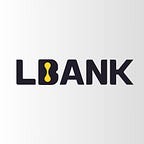What Are Smart Contracts? An Introduction to Smart Contract Technology
Smart contracts are rapidly gaining popularity as a tool for conducting transactions and enforcing agreements between parties. The development of smart contract technology is still in its early stages, but it has the potential to revolutionise the way businesses are conducted.
The goal of a smart contract on the blockchain is to simplify business and trade between both anonymous and identified parties, sometimes without the need for a middleman. A smart contract scales down on formality and costs associated with traditional methods without compromising on authenticity and credibility.
Examples of smart contract apps include financial purposes like trading, investing, lending, and borrowing. They can be used for applications in gaming, healthcare and real estate; and they can even be used to configure entire corporate structures.
Definition of a Smart Contract
A smart contract is a digital contract that is stored on a blockchain. This means that it is tamper-proof and can be executed automatically. There are many potential applications for smart contracts. For example, they could be used to streamline the contract negotiation process, create self-executing contracts that do not need to be manually enforced and reduce the costs associated with traditional contract management.
Smart contracts are programs stored on a blockchain that run when predetermined conditions are met. They are used to automate the execution of an agreement so that all participants can be immediately certain of the outcome without intermediary involvement or time loss.
Benefits of a Smart Contract
There are many potential applications for smart contracts. They include:
(i) Speed, efficiency, accuracy, transparency, security, and savings.
(ii) Because smart contracts are digital and automated, there’s no paperwork to process and no time spent reconciling errors that often result from manually filling in documents.
(iii) Smart contracts solve the issue of trust in the digital world. These are decentralised digital superior agreements that can replace entire industries to be more honest, safe, secure and fair.
(iv) They could be used to streamline the contract negotiation process, create self-executing contracts that do not need to be manually enforced, and reduce the costs associated with traditional contract management.
(v) A smart contract is a digital contract that is stored on a blockchain. This means that it is tamper-proof.
Limitations of Smart Contracts
(i) Changing smart contract processes is almost impossible because any error in the code can be time-consuming and expensive to correct.
(ii) Although smart contracts seek to eliminate third-party involvement, it is impossible to eliminate them. Third parties assume different roles from the ones they take in traditional contracts.
(iii) Since contracts include terms that are not always understood, smart contracts are not always able to handle terms and conditions that are vague.
The Future of Smart Contracts
Currently, Ethereum is the most popular smart contract platform, it is the world’s first smart contract platform. Many other cryptocurrency blockchains (including EOS, Neo, Tezos, Tron, Polkadot and Algorand) can run smart contracts.
Smart contracts will soon be far more mainstream as people increasingly understand and gain confidence in blockchain technology. As the use of smart contracts becomes more widespread, we are likely to see more industries start to adopt this technology. The future of smart contracts is looking very bright, and we can expect to see this technology continue to grow and evolve in the years to come.
Conclusion
Smart contracts can help to reduce costs and speed up the process of negotiation and execution of agreements. The technology has the potential to revolutionise the way businesses are conducted, as it can provide a more efficient and secure way of conducting transactions.
